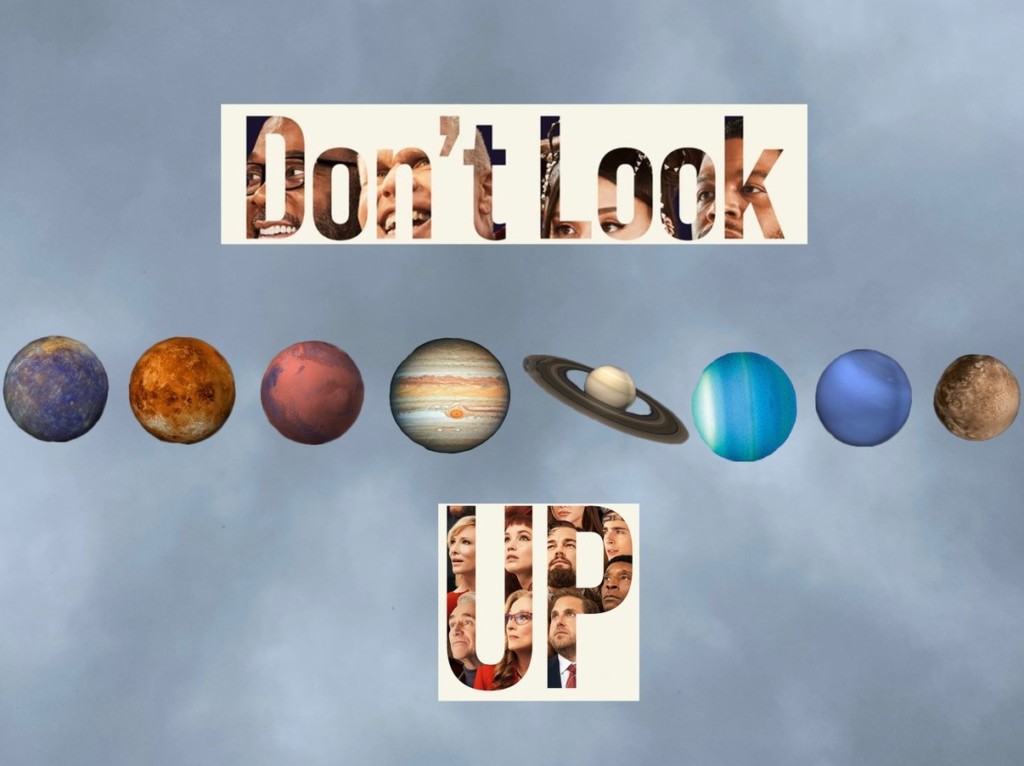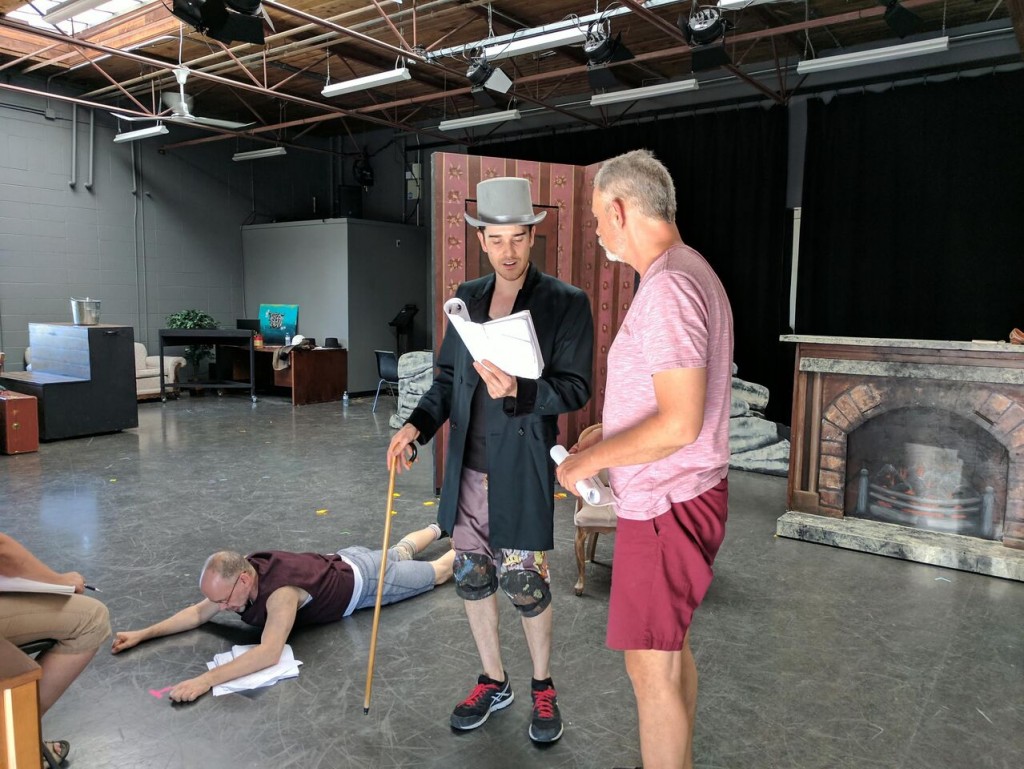
The real meat of the movie is its well-considered attention to the feeling that there isn’t an adult in the places where decisions are made.
Sometimes we aren’t supposed to laugh away bad news
By Matthew Fraser, Editor in Chief
3/5
Sometimes a topic is too vast or too controversial to be attacked and questioned directly. In these moments, it may be better to approach these issues circuitously or through allegory. Such is the approach writer and director Adam McKay and co-writer David Sirota took to the climate change crisis via Don’t Look Up.
Don’t Look Up centres on two scientists who discover a planet-destroying comet hurtling towards earth and attempt to mobilize both the government and the media world to the impending doom that humanity faces. As Dr. Randall Mindy (Leonardo Dicaprio) and Kate Dibiasky (Jennifer Lawrence) struggle to convince an uncaring and completely ill-equipped President Janie Orlean (Meryl Streep) that the danger that faces earth is paramount, they are confounded at every turn by a media that refuses to truthfully and seriously report reality while the public begs to be told the truth.
I thought it was interesting that Sirota and McKay both believe that the public is willing and ready for hard truths while the media has locked itself into the perpetual laughs and backslaps of infotainment. In an interview with Breaking Points, Sirota explained that as the rejection of scientific fact was made clear by the pandemic, the movie began to question whether we as a society can properly deal with uncomfortable and immovable facts that can not be negotiated with or away.
This leaves Don’t Look Up with a dual mandate; on one hand, the movie sets out to be an entertaining yet thought-provoking movie for easy consumption, on the other hand, the movie sets out to be a penetrating criticism of both the media and the corporate captured government.
Though I didn’t find the movie to be all that funny, I was entertained and I didn’t feel the need to reach for my phone every other scene. It has its moments of relative levity throughout provided by Jonah Hill or Jennifer Lawrence’s obsession with the price of snacks, but the movie does not dilute its point with guffaws and slapstick comedy. The real meat of the movie is its well-considered attention to the feeling that there isn’t an adult in the places where decisions are made. President Orlean is constantly seen as prioritizing her own short-term political goals and corporate interests over the well-being of existence itself. At one point Dr. Mindy is forced to question whether plans to mine the comet are intelligent if it will destroy everything on impact.
This brings to fore the film’s keen criticism of corporate media as a whole and corporate interests directing government policy. Peter Isherwell (as played by Mark Rylance) is the billionaire brainiac who puts his corporation’s technological interests ahead of the existence of even his customers. More importantly, is the lengths to which the government—as exemplified by President Orlean—will allow corporations to profit even if it hurts every other person in existence. Perhaps this and the movie’s two post-credit scenes do the best to explain the sheer disconnect between the working class alongside the informed academics versus the political and economic elites.
Yet Don’t Look Up does not pretend as if all of the working class is untied against the existential threat; the movie goes to great lengths to highlight the people they call “comet deniers.” In the case of the “comet deniers,” their conspiracy theories go from foolish and ill-thought-out to brazenly anti-semitic. And they are matched by a political party led by Orlean that encourages not skepticism, but outright stupidity and lies.
Ultimately I agree with the movie and the message it tried to push. I think that it did a good job of avoiding the urge to run wholeheartedly at the comedy aspect of its description. Simultaneously, it chooses its targets well and set out to launch subtle and not-so-subtle attacks on the targets most in need. It’s a good movie for people who have either not thought about this at all or those who have not thought deeply about media and the way it guides our response to problems.


